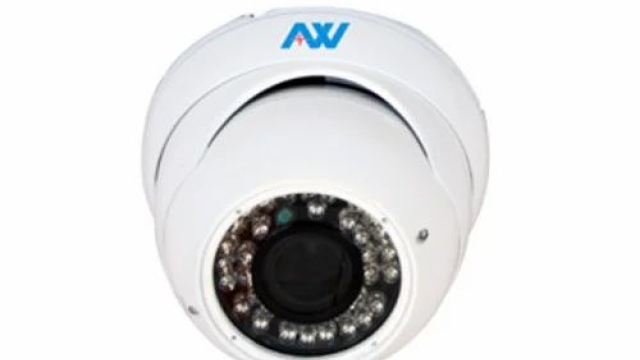
Security cameras have become an indispensable tool in today’s world, revolutionizing the way we approach security. These unassuming devices have the power to observe, deter, and document, providing an extra layer of protection for both public spaces and private domains. With their ever-evolving technology and growing ubiquity, it’s essential that we dive deep into the secrets and capabilities that security cameras have to offer. In this article, we will uncover the hidden potential of security cameras, shedding light on how they enhance security measures and empower individuals and organizations alike. So, get ready to embark on a journey through the realm of surveillance and witness the power that lies within these unblinking sentinels.
Benefits of Security Cameras
Security cameras provide numerous advantages for individuals and businesses. These surveillance tools have become an essential part of modern security systems due to their ability to deter crime, gather evidence, and increase overall safety measures.
Get A Quote
First and foremost, the presence of security cameras acts as a powerful deterrent against potential criminals. Knowing that their actions are being recorded, individuals with malicious intentions are less likely to commit crimes. The sight of a security camera can often be enough to discourage criminal activity and create a sense of security in public spaces, residential areas, and workplaces.
Moreover, security cameras play a crucial role in gathering evidence for criminal investigations. By capturing footage of incidents as they unfold, these cameras provide valuable information to law enforcement agencies. Not only can this footage be used to identify and apprehend suspects, but it can also be submitted as evidence in court proceedings, strengthening the case against perpetrators.
In addition to preventing and solving crimes, security cameras contribute to enhancing overall safety. Whether it’s monitoring high-risk areas in a factory or ensuring student safety in schools, these cameras allow for proactive surveillance and quick response in case of emergencies. By keeping an eye on various activities and potential dangers, security cameras help create a secure environment for everyone involved.
Overall, security cameras offer a range of benefits that contribute to the safety and well-being of individuals, organizations, and communities. From deterring crime to providing valuable evidence and facilitating prompt responses, these surveillance tools have proven to be a valuable asset in maintaining security in today’s world.
Types of Security Cameras
There are various types of security cameras available in the market today, designed to cater to different needs and requirements. Each type offers its own set of features and benefits, making it crucial to choose the right one for your specific security needs. In this section, we will explore some of the most popular types of security cameras used today.
Dome Cameras:
Dome cameras are a common choice for both indoor and outdoor surveillance. These cameras are characterized by their dome-shaped housing, which provides a discreet and aesthetic appeal. Dome cameras offer a wide range of viewing angles and are often equipped with pan, tilt, and zoom functionalities, allowing for flexible surveillance coverage. Due to their design, dome cameras are also more resistant to vandalism, making them suitable for high-risk areas.Bullet Cameras:
Bullet cameras are another popular choice for outdoor security. These cameras are named after their bullet-like shape and are often characterized by their sleek and cylindrical appearance. Bullet cameras are known for their long-range capabilities and are capable of capturing high-resolution images even in low-light conditions. They are typically weatherproof and equipped with infrared night vision, making them ideal for monitoring large open areas such as parking lots and perimeters.PTZ Cameras:
PTZ (pan-tilt-zoom) cameras are versatile surveillance solutions that offer complete control over the camera’s movement and zoom functionalities. These cameras can be remotely controlled to pan horizontally, tilt vertically, and zoom in or out. PTZ cameras are commonly used in locations that require active monitoring, as their ability to track and follow moving objects makes them an excellent choice for areas with high foot traffic, such as shopping malls or stadiums.
Choosing the right type of security camera depends on various factors including the environment, lighting conditions, desired coverage, and budget. It’s essential to assess your specific security needs and consult with a professional to determine the most suitable camera type for your application.
Best Practices for Security Camera Installation
When it comes to installing security cameras, there are a few best practices to keep in mind to ensure optimal performance and effectiveness. Here are some key points to consider:
Placement is crucial: The placement of your security cameras plays a vital role in capturing clear footage and maximizing coverage. It is important to strategically position cameras at entry points, such as doors and windows, and in areas with high foot traffic. Aim to cover vulnerable areas of your property while avoiding obstructions like trees or walls that could hinder visibility.
Consider lighting conditions: Lighting can significantly affect the quality of footage captured by security cameras. In areas with low light, it is advisable to invest in cameras equipped with night vision capabilities or consider installing additional lighting to enhance visibility. Avoid placing cameras directly facing bright light sources, as this can result in washed-out or distorted images.
Ensure proper camera settings: Properly configuring camera settings is essential for optimal performance. Adjust camera angles and focus to ensure clear and sharp images. Additionally, adjust camera sensitivity and motion detection settings to minimize false alerts and ensure accurate recording of relevant events. Regularly check and update firmware and security software to keep cameras up to date and protected from potential vulnerabilities.
By following these best practices, you can maximize the effectiveness of your security camera system and enhance the overall security of your property. Remember to regularly check camera functionality, perform routine maintenance, and keep an eye on emerging technologies to stay ahead in ensuring the safety of your premises.


